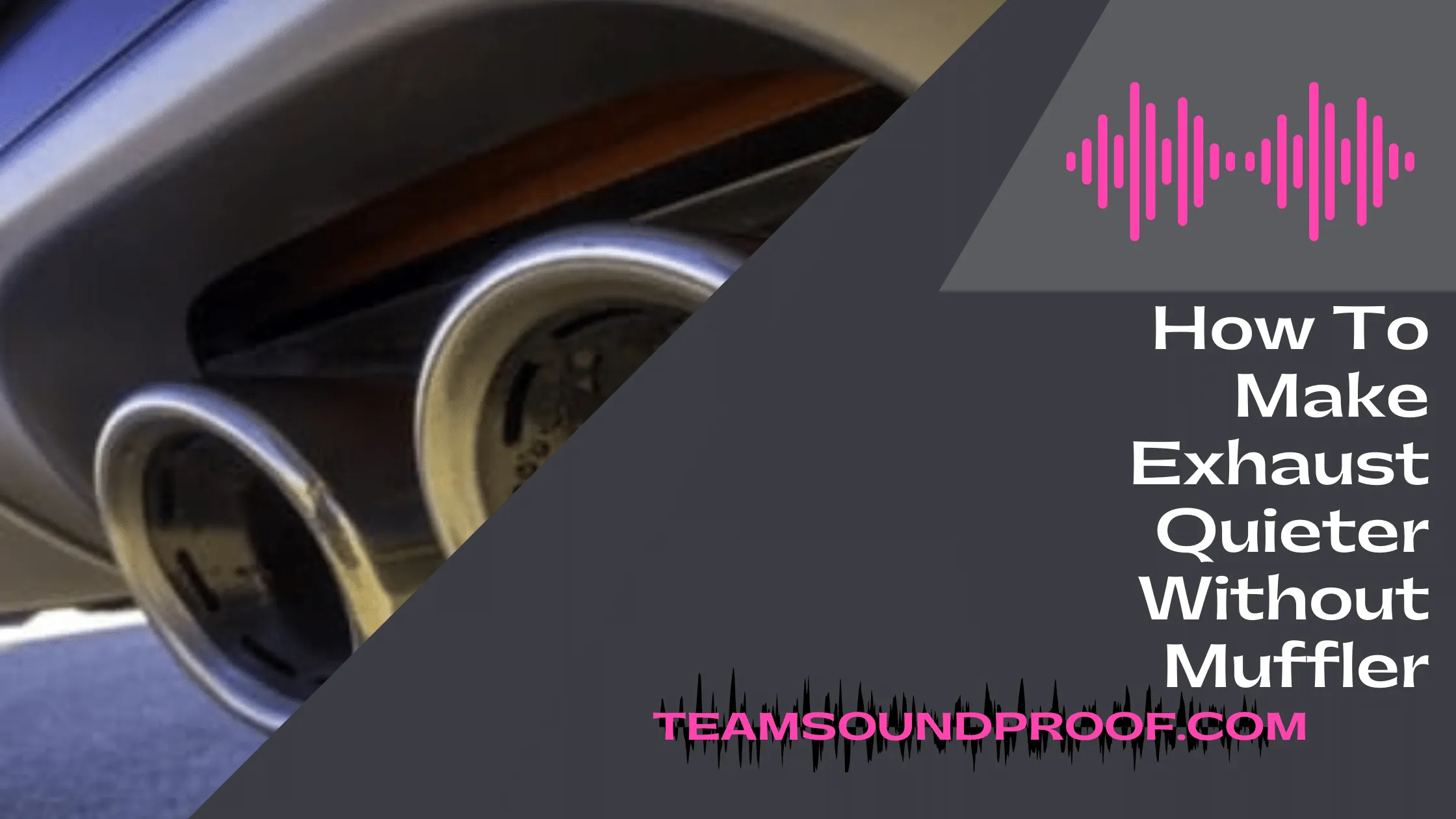Generators are a great way to have a reliable power source during a power outage or when you are camping in the great outdoors. However, they can be quite loud, which can be annoying for you and your neighbors.
The louder voice of the generator can damage your eardrums and disturb your sleep. There are ways to make your generator quiet as a cricket, though, and we’ll explore some of those here.
Let’s Check Out The Ways To Make Your Generator As Quiet AS Cricket:
If you want to use a generator without disturbing your peace, follow these tips on how to make your generator as quiet as a cricket.
1. Use a Sound Dampening Enclosure:
One of the best ways to reduce the noise generated by your generator is to use a sound-dampening enclosure. These are specially designed to absorb the noise produced by generators and can significantly reduce the amount of noise that is emitted.
2. Use a Sound Dampening Mat:
If you cannot use an enclosure, or if you want to further reduce the noise generated by your generator, you can use a sound-dampening mat. These mats are placed under the generator and help to absorb the vibrations and noise that are produced.
3. Use a Muffler:
Another way to reduce the noise generated by your generator is to use a muffler. Mufflers work by redirecting the exhaust away from the generator, which reduces the amount of noise that is emitted.
4. Use Sound Dampening Material:
If you want to further reduce the noise generated by your generator, you can use sound-dampening material. This material is placed around the generator and helps to absorb the noise that is produced.
5. Install Sound Deflectors:
If you want to further reduce the noise generated by your generator, you can install sound deflectors. These are placed around the generator and help to redirect the noise away from you and your neighbors. The important thing to bear in mind here is that this won’t soundproof anything. The purpose of sound deflectors is to deflect sound, which just means there’s less chance of it reaching you. As a result, it should also reduce the overall airborne noise.
6. Use Water to Quiet Exhaust Noise:
For reducing the noise of the generator you can use water to quiet the exhaust noise. It will help to lessen the sound that carries through the air by using a water spray on or around the exhaust pipe. This will not only reduce generator noise but will also help to keep the engine cooler.
7. Move Your Generator:
If you have your generator set up in an enclosed space, such as a garage, the sound will be amplified and will be much louder. If possible, try to move your generator outside or to a larger space. This will help to reduce the overall noise that is emitted.
8. Use Rubber Feet:
If you are using your generator on a hard surface, such as concrete, the vibrations from the generator can be amplified. To help reduce these vibrations, and the noise that they produce, you can use rubber feet. These are placed under the generator and help to absorb the vibrations.
9. Use a Lower RPM Setting:
Most generators have a higher RPM setting that is used for starting the generator. Once the generator is running, you can switch to a lower RPM setting, which will help to reduce the noise that is produced.
10. Angle The Exhaust Away:
The noise from the generator is amplified when it is directed towards you. If possible, angle the exhaust away from you and your neighbors. This will help to reduce the overall noise that is emitted.
Some Additional Tips For Making Your Generator Quiet:
1. Keep Your Generator Well Maintained:
A well-maintained generator is a quiet generator. Make sure to regularly check and change the oil, air filter, and spark plugs. This will help to ensure that your generator is running smoothly and quietly.
2. Use The Right Fuel:
If you are using petrol, make sure to use the higher octane fuel. This will help to reduce the noise that is emitted by your generator.
3. Use a Lower Load Setting:
The higher the load on your generator, the louder the noise that is produced. If possible, try to use a lower load setting, which will help to reduce the overall noise.
4. Let Your Generator Warm Up:
If you start your generator and immediately put it under a heavy load, the engine will have to work harder and will produce more noise. To help reduce this noise, let your generator warm-up for a few minutes before putting it under a load.
5. Use Only What You Need:
The more devices you have plugged into your generator, the higher the load on the generator, and the louder the noise that is produced. If possible, only use what you need and unplug any unnecessary devices.
6. Use a Longer Extension Cord:
If you are using an extension cord, make sure that it is long enough so that you can position the generator away from you and your neighbors. The further away the generator is, the less noise it will produce.
7. Use a Sound Barrier:
If you have your generator set up in an enclosed space, such as a garage, the sound will be amplified and will be much louder. If possible, try to create a sound barrier between you and the generator. This will help to reduce the overall noise that is emitted.
Final Words:
While it is impossible to completely silence a generator, there are some things you can do to make it quieter. We’ve outlined the best tips for making your generator as quiet as possible. Follow these guidelines and you should be able to generate power without disturbing your neighbors (or yourself). Have you tried any of these methods? Do you have any other tips to share? Let us know in the comments below.





